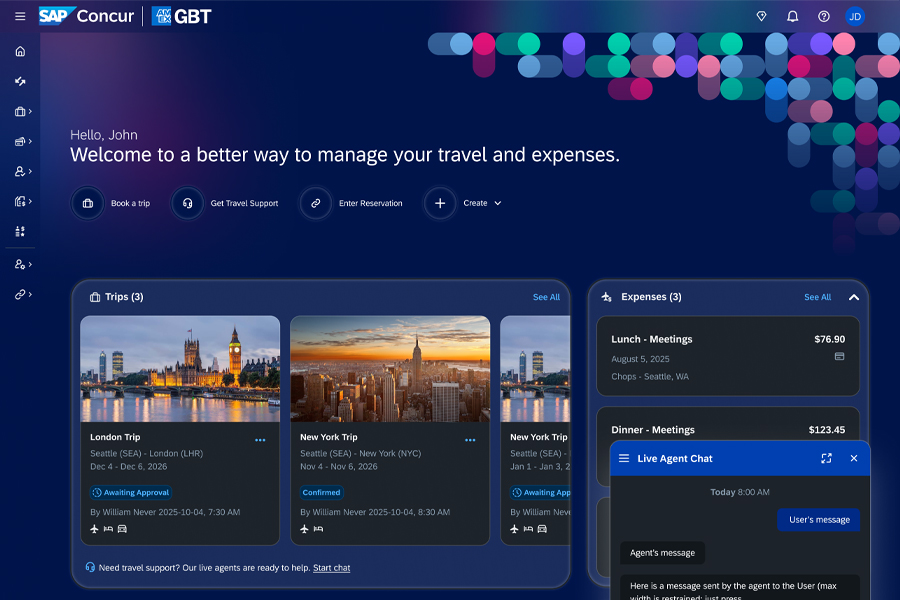Research from Internova shows business traveler confidence is rebounding
Businesses are keen to travel but are being more cost conscious, according to the 2025 Internova Index: North American Business Traveler Insights, a new survey of travel trends conducted by Internova Travel Group.
Domestic and international business travel have broadly performed similarly from the first quarter of 2024 to the same period in 2025. Demand for economy air has increased compared with premium classes, suggesting that businesses are keen to travel but are being more cost-conscious. And hotel spending has decreased, even as advance daily rates have remained flat or increased slightly. The decrease in hotel spending is driven by shorter business trips as companies try to make travel more efficient.
While forward bookings are lower than in 2024, they have recovered strongly from their lowest point, an indication that business traveler confidence is rebounding.
Travel agencies continue to play a crucial role in business travel, particularly among C-suite executives. In the overall sample, 49% of business travelers report using a human travel advisor as their primary booking channel over an online booking tool. However, 70% of C-suite executives use a human travel advisor to book their travel. This group tends to have particularly complex trips, spends more and expects a higher level of service that online tools often can’t provide.
Henry Gilroy, executive vice president, strategic development, said the index shows that companies are being more careful in the number and duration of business trips they take and how they spend their travel dollars. With nearly half of business travelers (and a much higher percentage of C-suite executives) using a travel advisor, said the report, “it’s clear that our corporate clients understand the vital assistance we provide in getting them the best value for their money.”
North American Business Traveler Insights is a corporate travel-focused version of The Internova Index: North American Traveler Insights series, which is published annually. The report is based on an analysis of millions of travel bookings made by North American residents, as well as a consumer survey of approximately 3,000 U.S. travelers.
The study separates business travelers into three segments: executives and employees in senior management positions; road warriors and high-frequency travelers in areas such as sales, account management, training or other interaction-focused roles; and occasional travelers, where travel is not a core part of their role.









